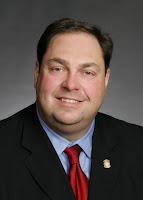
The most common argument those who support vouchers use is that money to educate a child should follow a child. Children in private school, they claim, do not consume the public dollars they would if they attended public school. Since that money is not needed by the public school, the money should flow to the private school.
That argument might hold water if public education was a “zero-sum” game; it most certainly is not.
Every Oklahoman – even those families who put their children in private schools – benefits because we offer a free public education to every child. It is my strongly-held belief that America owes its position as the world’s last remaining superpower to the fact every child – regardless of the wealth of their parents – can get a public education.
The economy is stronger because everyone can get an education. Our quality of life is improved. Giving every child a chance to become everything God intends for him or her to become creates opportunity for all of us.
That is the mission to which public school funding is dedicated. It simply stands to reason that if everyone benefits, then everyone should help bear the burden of funding that mission. Vouchers deny that basic fact about education and how it must be funded to the benefit of all of us.
Another argument that supporters of vouchers use is their claim that some public schools are so irreparably broken that we have to provide an escape route for children trapped in substandard public schools.
It is true that some public schools are better than others; in fact, some private schools are better than others. For us, however, to abandon any school simply because it right now might be underperforming is social Darwinism at its most perverse.
We ask public schools to do so much: educate every child. That even includes those who might not have had a hot meal the night before; or those who live in abject poverty; or those who might not have supportive parents; or those with challenges many of us could not even imagine. We must not abandon them; we must make every public school the best it can be.
Private schools serve an important purpose, but they are not obligated to – and in fact, never will – educate every child. While I would never oppose any parents’ right to avail themselves of private school for their children, we dare not abandon the glory of public education.
America’s history is replete with individuals in every field of endeavor who would not have achieved what they did without public schools. Our nation would not be as strong without public education; our future would not be as bright without public education.
So, any proposal like vouchers that would benefit a precious few at the expense of us all is simply bad public policy that does nothing less than put our entire future at risk.



